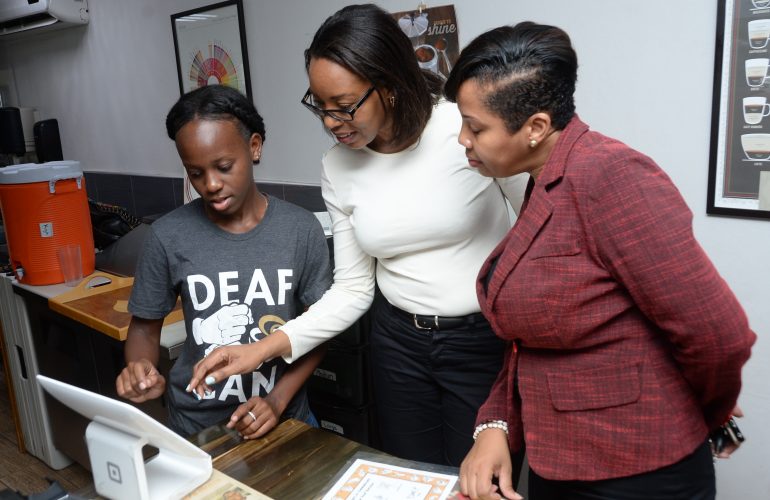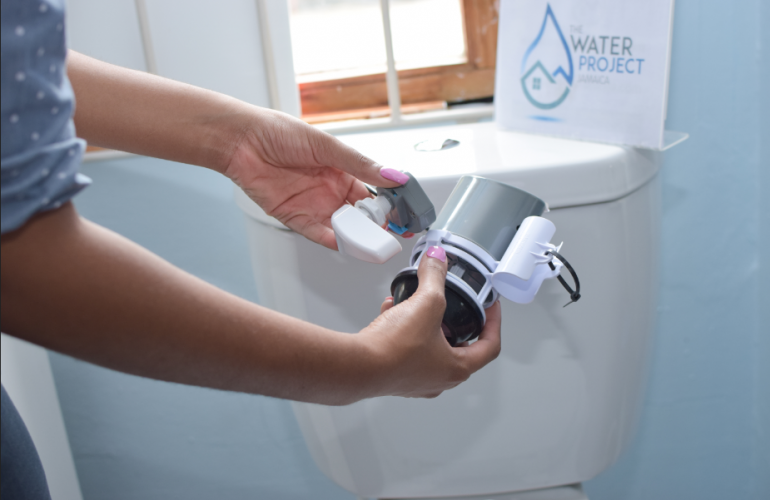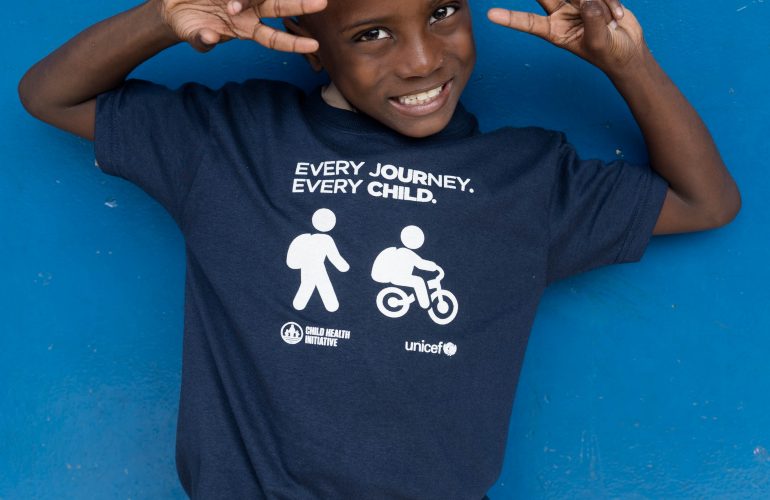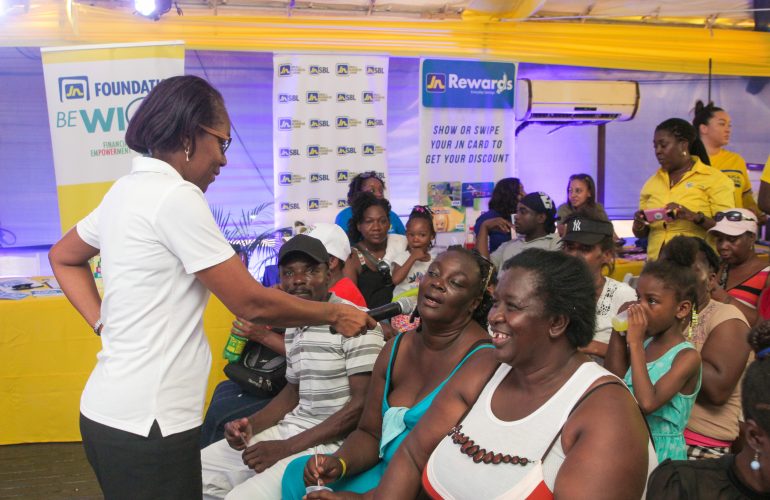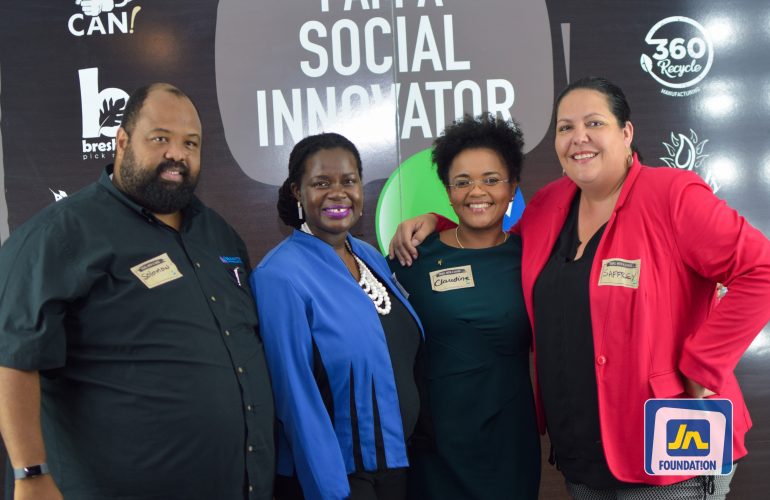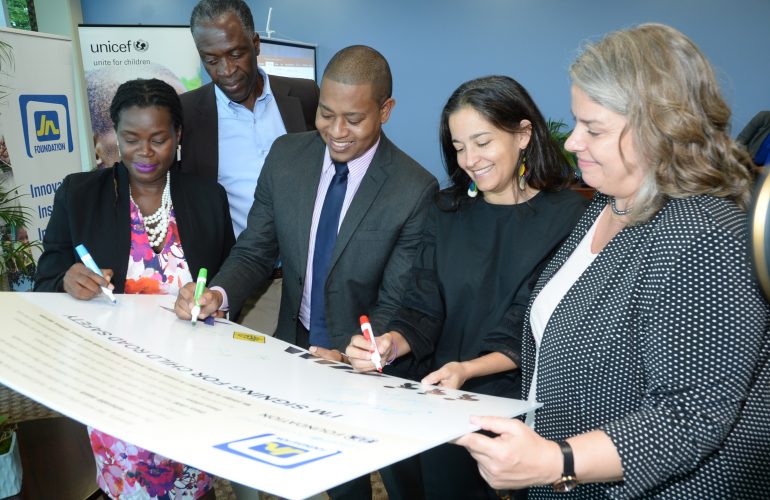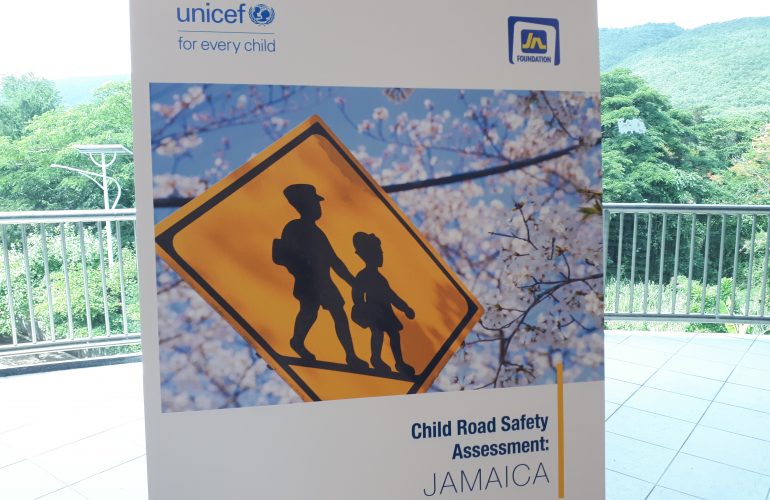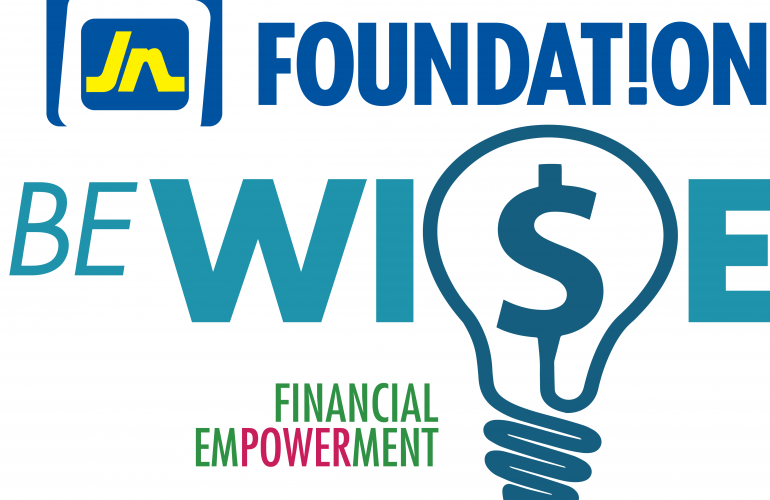Use Your Talent To Build Wealth
JN Bank employees Ariel Sinclair, operations support officer at the Papine MoneyShop; and Marissa Barrett, project specialist in the Credit Risk Management Unit, recently embarked on new hobbies which they find not only fulfilling, but which have transitioned into positive money-making opportunities.
Ariel Sinclair
Two years ago, Sinclair started to create exotic designs on discarded wine bottles, an idea he gleaned from a class discussion about waste management, while pursuing a logistics management programme at Excelsior Community College.
His awareness about his individual responsibility to protect the environment, led him to ponder about what he could personally contribute to reduce waste.
“My initial idea was to recycle tyres to make seats or centre tables, as I saw other persons doing that; but, the process would have been time consuming.
Then I thought about up-cycling wine bottles and find new uses for them. I became more interested in that idea.”
Being artistically inclined, Sinclair decided to pursue creating exotic designs on discarded wine bottles.
Since creating the first bottle about two years ago, he has designed close to 200 bottles, 70 of which are part of his personal collection.
Last Christmas, he filled 40 special orders, and also supplied bottles that were used as centre pieces for weddings and parties.
“I do sets of three bottles, each with contrasting designs. Each set is sold for $1,500; however, persons who wish to acquire a single bottle can purchase one for $700. I really enjoy bottle painting. It is very relaxing and allows me to express my creativity,” he related.
Marissa Barrett
Marissa Barrett’s new hobby emerged following an exhaustive search for a desk organiser that was both functional and aesthetically appealing. When she could not find any organisers in a store or online, she decided to make it herself.
For Marissa, having grown up in a family of carpenters, she was exposed to designing and creating things from an early age.
“I recall that when I was about six or seven years old, I was often in my father’s woodwork shop. I made picture frames; and later, even constructed a bookshelf, with my father’s help, which I varnished and stained myself.”
While a student at Mannings School, Marissa excelled in art and craft, using a variety of materials including seashells and clothes pins.
Late last year, she got back into the groove of art and craft when she made her desk organiser. To date, she has designed about 30 organisers, and the one that occupies her desk remains her favourite.
Using craft items sourced online, Marissa makes desk organisers in various sizes, designs and colours, usually from the specifications given by her clients. The prices, she said, are kept at a minimum, which basically covers the cost of materials. A small organiser that serves as a pen and pencil holder is sold for $500, while a larger one with multi compartments, complete with a tray and vision board, is sold for up to $4,500.
“It’s a very fulfilling feeling when I see the enthusiastic reaction after I complete and deliver each piece,” she explained.
You could earn from your hobby
Rose Miller, grants manager at the JN Foundation, urges persons to consider earning an income from their hobby, as Ariel and Marissa have successfully done.
“Having an additional stream of income can go a far way in balancing your budget at the end of the month; and provide funds which can be saved, or invested to reach your financial goals,” Miller advised.
She maintained that, “Because a hobby is an enjoyable activity, sustaining this side business is achievable, as you are doing something that you are passionate about. Besides, the satisfaction gained from seeing others enjoying the products or service you provide; and, the income earned from your skill can make a significant contribution to your financial security,” she said.
Miller noted that hobbies, such as cooking, gardening, singing, playing an instrument, writing, photography or painting, can be quite profitable; and the products or service can be promoted via social media.
Jacqueline Shaw Nicholson, communications and client services manager, at JN Small Business Loans, said that several of her clients started their business out of their hobby; and, pointed out that, persons who are currently operating their “side business” can obtain a loan to expand it.
“Loans for micro and small businesses range from $20,000 to $15,000,000 with loan term of up to five years for repayment,” she disclosed.
To view Ariel’s catalogue of designs, visit his social media handle at Integra: @Wine_Bottle_Art. And, Marissa’s artistic expressions can be viewed on Facebook at www.facebook.com/mbdesigns2017.


